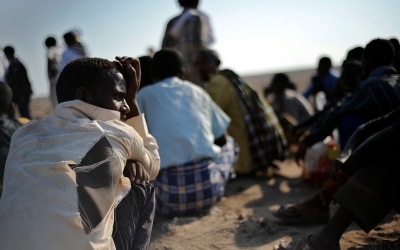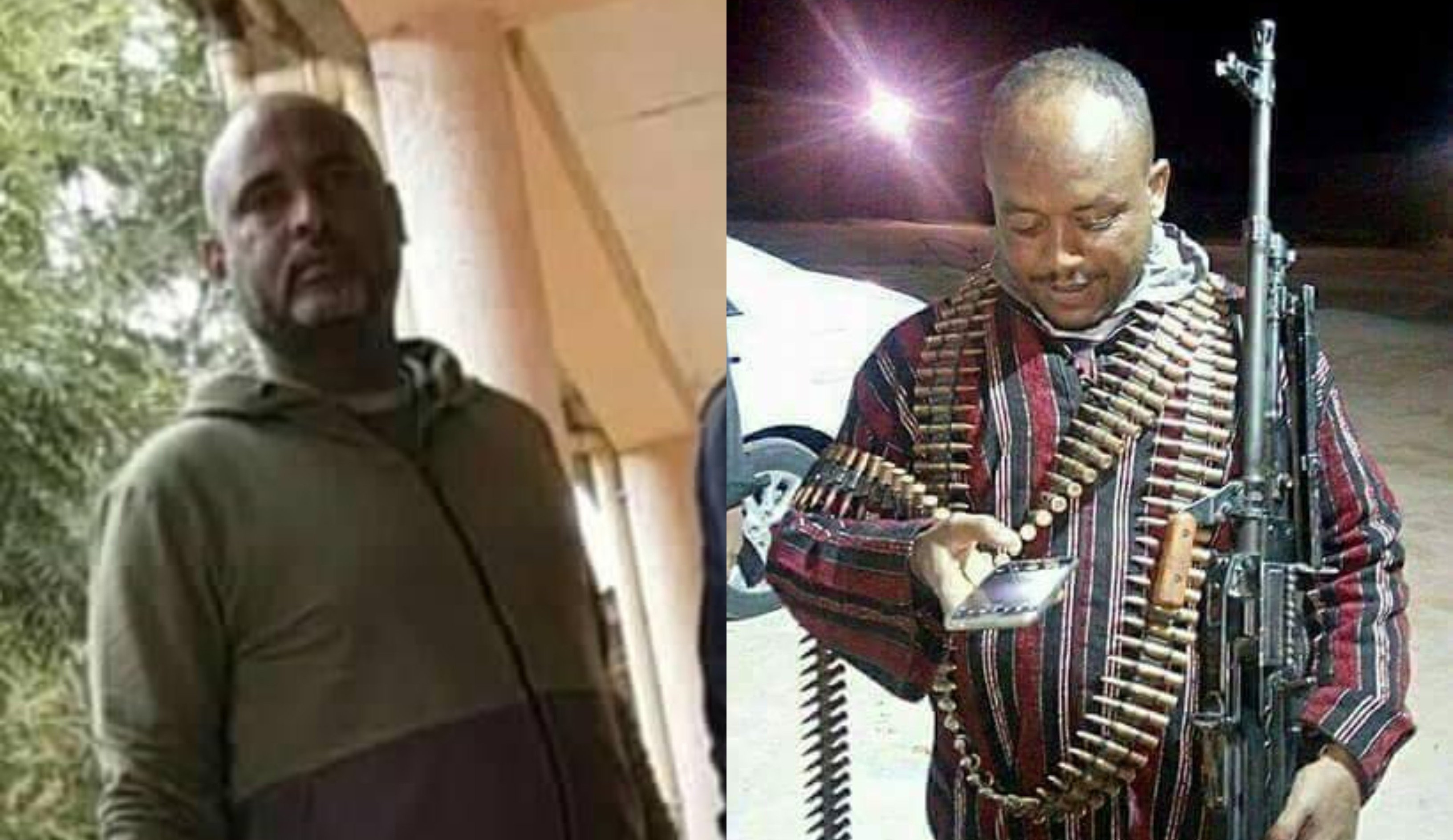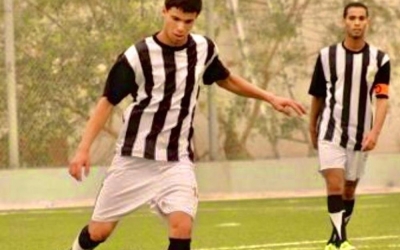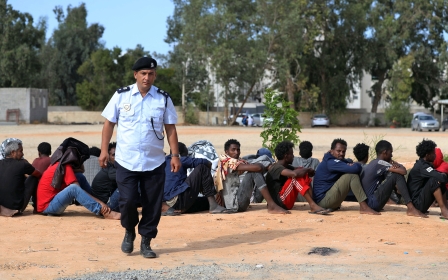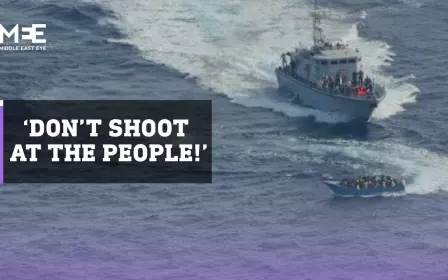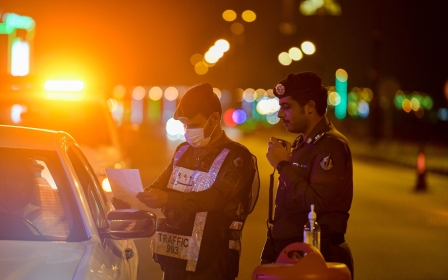European task force established to locate 'cruellest' human trafficker
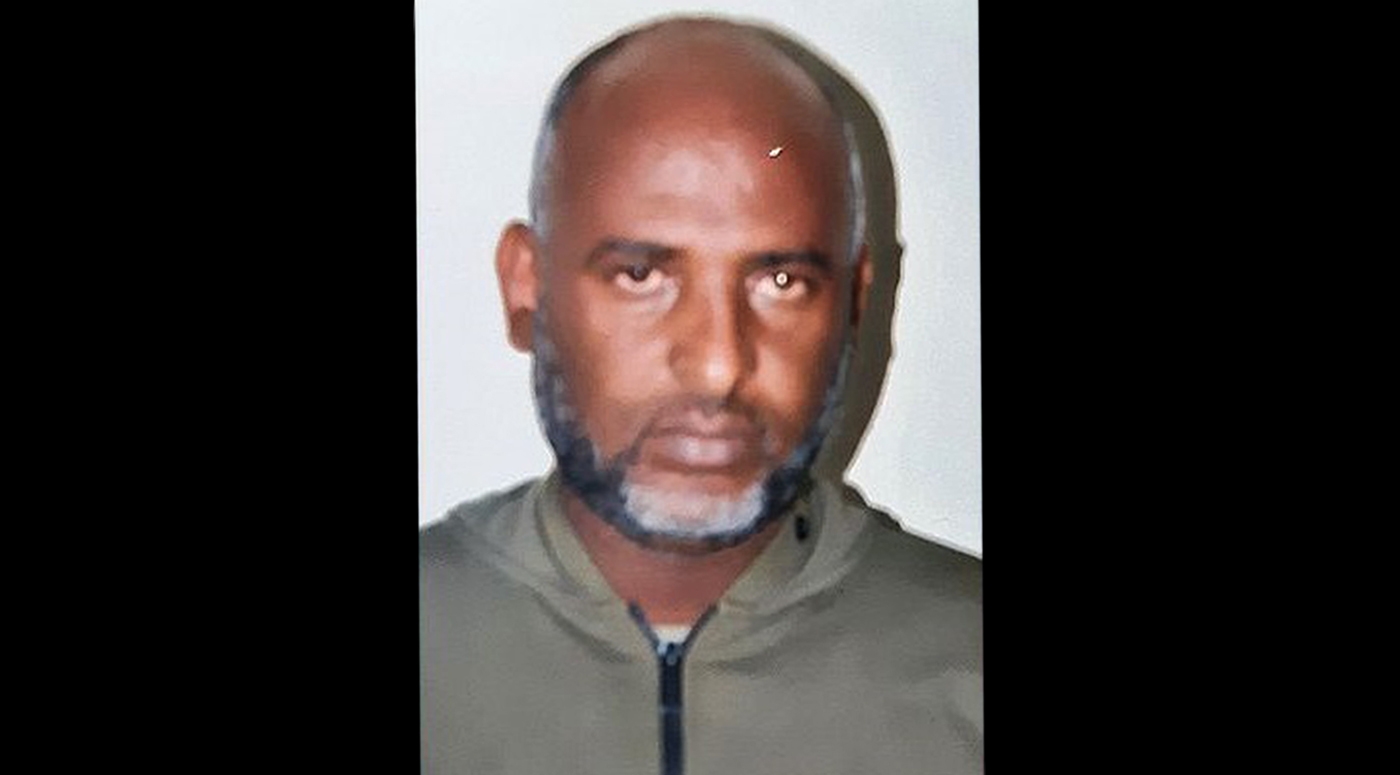
The Dutch government and Europol have established an international task force to locate the whereabouts of notorious human trafficker Kidane Zekarias Habtemariam.
Convicted by an Ethiopian court of extortion, kidnapping, and torturing migrants to death in Libya, Kidane managed to escape Ethiopian custody in February, just prior to being sentenced to life in prison.
Italy will also form part of the European task force, Middle East Eye has learned, as the country is often the target destination of Kidane’s victims, migrants from the Horn of Africa who are sold into captivity in Libya.
The move comes as part of ramped-up initiatives by the Netherlands to hasten the recapture of the fugitive, who escaped after pretending to use the bathroom at a courthouse in the Ethiopian capital Addis Ababa, before simply walking off the premises and absconding.
Last week, the Netherlands listed Kidane - who it described as one of the “cruellest people smugglers” - among the country’s most wanted criminals.
A number of Kidane’s victims are said to reside in the Netherlands, including one who featured on a weekly Dutch law enforcement television programme last week which profiled Kidane.
“For us, but most of all for victims of human trafficking of this criminal organisation, it is important that Mr Kidane faces justice again,” Brechtje van de Moosdijk, spokeswoman for the Netherlands Public Prosecution Service, told MEE.
“Whether it is in Ethiopia or in the Netherlands, someone sentenced or wanted for such grave crimes cannot remain at large.”
Libyan hell
Listed as 37 but thought to be closer to 50, Kidane is believed to have made a fortune by taking advantage of Libya’s post-Gaddafi lawlessness to establish himself as a crime boss there.
His extortion racket targeted migrants hopeful of sailing across the Mediterranean to European shores, kidnapping and holding them at a large warehouse staffed with armed Libyan guards in the town of Bani Walid, 180 km southeast of Tripoli.
'I’ve seen every kind of atrocity. Kidane and his gang are bathed in blood. Killing is nothing for them'
- Fuad Bedru, survivor
Among migrants, Bani Walid became known as a “ghost town” due to the many migrants who would disappear without a trace after being taken there.
Survivors describe widespread rape, starvation, and brutal torture in the warehouse. The torture ends either when victims coerce their loved ones to wire over exorbitant ransom fees of up to $6,000 - or if they are unable to pay, they are murdered by their kidnappers.
“Kidane lived in a home adjacent to the camp. He’d come to see us and beat someone up when he felt like it,” one survivor, 24-year-old Ethiopian national Fuad Bedru, told MEE earlier this year. “The man is a savage, a monster.
“I’ve seen every kind of atrocity. Kidane and his gang are bathed in blood. Killing is nothing for them.”
Victims in the Netherlands have described to Dutch police how Kidane would organise football matches between migrants at Bani Walid, where winners would be awarded a woman from the opposing team to rape, and players who miss scoring opportunities would be shot.
Kidane’s criminal enterprise might have made victims of tens of thousands since beginning operations in or around 2014, exploiting the desperation of Eritrean, Ethiopian, and Somali nationals eager to flee conflict, oppression, and poverty in their homelands.
Kidane synced his Libya operations with those of a close friend and fellow human trafficker, Tewolde Goitom, also an Eritrean national who was better known as “Walid”.
Earlier this year, Walid was jailed for 18 years in Ethiopia and is accused of raping hundreds of captive women in Libya.
According to Sweden-based migrant rights activist and journalist Meron Estifanos, Kidane delivered a 10m birr (over $211,000) bribe to an Ethiopian official, who facilitated his escape.
“The [bribed official] secured Kidane’s transportation out of Ethiopia and he was in Kenya for a while,” Meron told MEE.
Victims criticised Ethiopian authorities for permitting one of the continent’s most dangerous criminals to escape and began openly wondering if his partner Walid would slip away as well.
Nevertheless, according to the Dutch public prosecution, Ethiopian counterparts remain involved in the hunt for Kidane.
“We have established [judicial] contacts with other countries, including Ethiopia, as this is the last country Kidane was known to reside in,” van de Moosdijk said. “We’d welcome it if countries all over the world paid attention to such criminal activities, under which thousands of victims are being smuggled and exploited in degrading conditions.”
Responsibility
At least one prominent migrant rights advocate has dismissed the notion that the initiative suggests a greater European interest in protecting the rights of migrants in Libya.
“Kidane or other smugglers wouldn’t have been there in the first place had Europe not closed all legal access [for migration], creating the conditions for the proliferation of human trafficking,” said Father Mussie Zerai, head of the Rome-based Habeshia organisation, which lobbies for migrant rights.
Of Eritrean descent himself, Father Mussie has worked on migration-related issues for decades, providing assistance to people trying to cross the Mediterranean, including coordinating rescues with the Italian coastguard for shipwreck victims and lobbying on behalf of migrants languishing in Libyan detention centers.
Nominated for the Nobel Peace Prize in 2015, his phone number is often circulated amongst migrants in Libya as a sort of distress hotline.
“Europe maintains a mandate and a policy of restriction which leads to human rights violations in Libya,” he told MEE. “Europe presses on the Libyan government and pays it to stop refugees trying to reach its shores, but doesn’t care about the consequences.”
Father Mussie was referring to the EU’s support for various Libyan security institutions, including the country’s coastguard, which is infamous for the abuses it has meted out against migrants.
Human Rights Watch has called on the EU to review its cooperation with Libya.
Earlier this month, Libyan authorities launched a massive crackdown, detaining over 5,000 migrants, including hundreds of children, and holding them in overcrowded facilities. The crackdown has been condemned by Eritreans across Europe and North America, with demonstrations calling for humane treatment of migrants.
Still, the renewed measures to recapture the human trafficking kingpin are welcomed by some victims, who say it at least keeps Kidane on the radar.
Kiflezghi, 33, remembers vividly the four-month period in 2017 in which he says his younger brother was whipped almost daily at the Bani Walid warehouse until relatives in Europe cobbled together over $10,000 to buy his freedom.
“He is the devil incarnate,” he said over the phone from his residence in Germany. “Our family is still scarred by the stress and anguish we suffered during that horrible year.
“It’s good to hear that people are after him, although I don’t know if it will be effective,” Kiflezghi added. “He has money, influence, and contacts across Africa who protect him. It is what got him out of an Ethiopian jail.”
Middle East Eye propose une couverture et une analyse indépendantes et incomparables du Moyen-Orient, de l’Afrique du Nord et d’autres régions du monde. Pour en savoir plus sur la reprise de ce contenu et les frais qui s’appliquent, veuillez remplir ce formulaire [en anglais]. Pour en savoir plus sur MEE, cliquez ici [en anglais].


